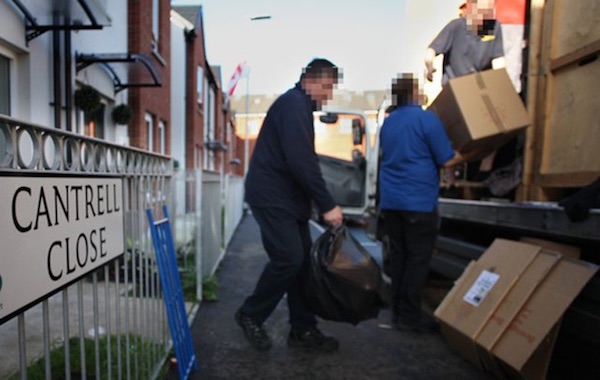
The PSNI has been forced to admit unionist paramilitaries were behind threats which caused four Catholic families to flee their south Belfast homes.
After coming under pressure over the force’s non-committal response to the intimidation, PSNI chief George Hamilton finally pointed the finger at the UVF murder gang this week.
“There are people using the guise of the UVF who we believe are members of that organisation who are threatening people because of their community background, because of their religion, to leave their home - that is not acceptable,” he said.
Although Mr Hamilton said was not sure if the threats were supported by the leadership of the UVF, which he described as “chaotic and disorganised”, or if they were made by individual members, when challenged outright if it was the UVF, he finally replied: “Yes.”
Sinn Fein’s Gerry Kelly, the party’s policing spokesman, vowed to pressure the PSNI to bring individuals before the courts.
“It is 2017 and the UVF continues to be involved in murder, racketeering, extortion, drug dealing and issuing sectarian threats,” he said. “They have no other purpose than to serve their own ends.”
While sectarian intimidation remains common in the north of Ireland -- five Catholic families were recently burned out of the mainly Protestant Waterside area of Derry -- the Cantrell Close and Global Crescent estates had been promoted as a cross-community ‘shared space’.
Despite efforts to hold up the development as an example for shared living, loyalist paramilitaries had always sought to claim them as part of their territory.
The attribution of blame by the PSNI comes after mounting pressure on the force to confront unionist paramilitaries.
Their hands-off approach has been sharp contrasted by their harassment of republicans, which has led to protests in nationalist areas. This week, four men and a woman appeared in court charged with holding an “unnotified procession” in connection with an Easter Rising commemoration in Lurgan.
There is also little nationalist confidence in a new panel which began work this week to monitor efforts to “stamp out” loyalist paramilitaries and IRA groups. Set up as a result of a 2015 talks agreement, the ‘Independent Reporting Commission’ will report annually on progress to the London and Dublin governments and will take over the role of the former MI5-linked ‘Independent Monitoring Commission’.
The four IRC members are former US special envoy to the North of Ireland Mitchell Reiss, ex-human rights commissioner and political leader Monica McWilliams, lawyer John McBurney and former Irish diplomat Tim O’Connor.
Mr Reiss said he was grateful for the opportunity to again play a role in the North of Ireland. “I hope the commission’s initiatives will help to bring about the continued transformation envisioned by the British and Irish governments, the local political parties and the citizens of the North of Ireland,” he said.
![[Irish Republican News]](https://republican-news.org/graphics/title_gifs/rn.gif)
![[Irish Republican News]](https://republican-news.org/graphics/title_gifs/harp.gif)

